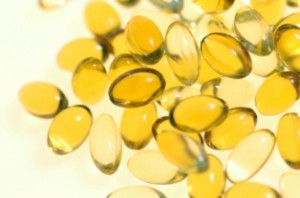Vitamins: Can You Have Too Much of a Good Thing?
It’s time to go back in time. Think back to when you were in your high school health class. At some point during the semester, I’m sure you learned about vitamins and how all of them fall into one of two classes: Fat soluble or water soluble. Water soluble vitamins—like vitamin B complex, and vitamin C—dissolve easily but empty out of the body easily as well. In other words, you need to be eating them every day to have a sufficient amount for your cells to work with.
In contrast, fat soluble vitamins—vitamins A, D, E and K—require fat for the body to absorb them. And because the body stores fat, the body absorbs fat soluble vitamins readily. In other words, you don’t need copious amounts of these vitamins to be healthy. In fact, if you have too much of them, they can cause serious problems. A recent study demonstrates what I mean.
According to researchers from Tel Aviv University in Israel, people who supplemented “indiscriminately” with vitamin E supplements had a worse quality of life than those who didn’t take vitamin E supplements.
They assessed “quality of life” through a unique measurement called quality adjusted life years, or QALY. As the lead doctor explains it, imagine someone who has minimal health problems over a 10-year period, but then suffers a stroke. If that person lives, those next 10 years are typically lived under conditions where he or she must rely on others to care for them. This person has a low QALY.
So when researchers applied this measuring stick to over 300,000 subjects, they found an interesting correlation among people who supplemented with vitamin E for an extended period of time. For those that supplemented with vitamin E, they actually lived about four months fewer than those that didn’t supplement with vitamin E.
The findings were convincing enough for the researchers that they went so far as to conclude that “going to the grocery store to buy vitamin E supplements won’t do you good.”
I’m not willing to go that far.
What I am willing to say is that fat soluble vitamins should not be taken indiscriminately. In other words, don’t supplement with fat soluble vitamins if you’re already getting plenty of vitamin D from the sun, vitamin E from leafy greens and nuts, vitamin A from carrots and yams, and vitamin K from cabbage and broccoli.
Here’s the recommended range for each vitamin.
For men and women:
Vitamin AÂ Â Between 900-3,000 mcg
Vitamin DÂ Â Between 10-50 mcg
Vitamin EÂ Between 33-1,500 mcg
Vitamin K Â At least 75 mcg (No known toxicity symptoms for vitamin K)
For information on what foods are richest in A, D, E and K, click the highlighted letters.
Sources:
supplementquality.com
sciencedaily.com
Related Posts
- Prevent Premature Aging with Daily Vitamins
- Intake of Prenatal Vitamins Drastically Reduces Children’s Cancer Risk, Study Finds
 
|
Enjoy this article? We guarantee your privacy. Your email address will NEVER be rented, traded or sold. |
Visit my new site: Self Help On The Web
 |
 |
Posted: January 6th, 2010 under Supplements, Vitamin E.
Tags: fat soluble vitamins, Vitamin E, vitamin E supplementation







